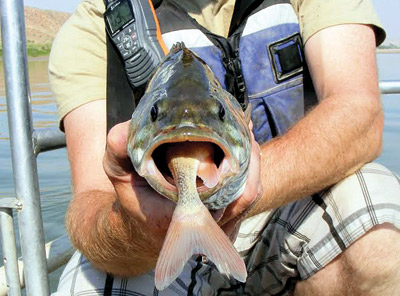|

|
Nonnative Invasive Aquatic Species
Non-native fish species present in Grand Canyon were mostly established as a result of intentional stocking to develop sport fisheries in the Colorado River and its tributaries during the late 1800s and early 1900s. Impacts of these actions was not fully understood until later in the 20th Century when a shift to native species conservation management occurred in the NPS. Negative impacts of non-native fish and altered habitats on native fish species has been well-documented throughout the world. Over 20 non-native fish species have been documented in GCNP; However, the more common, large-bodied, species of management concern include rainbow and brown trout, common carp, channel catfish, and bullhead species, striped and smallmouth bass. These species are known predators on native fish or native fish eggs or compete with native fish species. (NPS CFMP-EA_Pg 62) (17 warmwater species, 2 coldwater species, and 1 coolwater species)--- At least 7 additional species occur in nearby or adjoining waters with potential access to the Glen Canyon Ecosystem.
|
